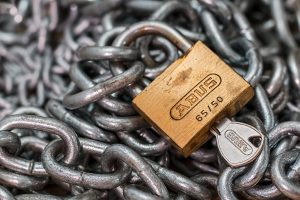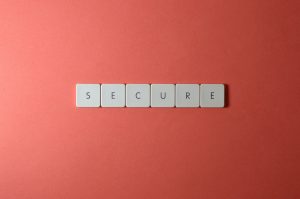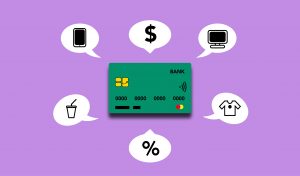
(Pexels – George Pak)
As university students, we all know how much independence we are given in our studies, so most of the decisions made are completely up to us to make.
But there will be times when we make bad decisions unknowingly, and these will have negative consequences.
These consequences will worsen, especially when it’s in the digital world and we are not careful with our actions.
Here are several tips to help university students like you stay safe online!
Backing up data frequently

(Pexels – Lee Campbell)
During lessons, we tend to take notes and are required to fill out documents all online.
Thus, there are higher chances that attackers can inject malware into our devices, and the next thing we know, all our notes and files are gone.
Therefore, it is crucial that we remember to save and backup our data at least once a day.
Antivirus or anti-malware software

(Pexels – Tima Miroshnichenko)
This is a must-have for all electronic devices you own!
Malicious websites, email attachments, documents, etcetera can bring in viruses and malware that will infect your devices.
Antivirus software can detect, prevent, and remove malware from your devices. Some recommended ones include McAfee and Norton.
Two-factor and multi-factor authentications

(Pexels – Pixabay)
When logging into accounts such as our school accounts, enabling two-factor or multi-factor authentication will provide a second layer of security verification.
These can be in the form of sending a one-time password to your phone or email, requiring you to verify images or enter a special code, and so on.
This will make it more difficult for attackers to gain access to your accounts.
SSL certifications

(Pexels – Miguel Á. Padriñán)
An SSL certificate is a certificate that proves if a website is valid and establishes a secure connection between the web server and browser.
It is important that university students like us have at least the basic knowledge about it and know how to identify if we are using secured websites.
Websites with HTTPS are secure, whereas HTTP is not. HTTPS uses an SSL certificate to encrypt all data traffic back and forth.
However, when you check for an SSL certificate in a browser, it may be a single-domain, multi-domain, or wildcard SSL certificate (three types of SSL certs).
Securely use online banking

(Pexels – Monstera)
Whenever we do any online banking activity, such as sending a PayNow to a friend, we should remain vigilant on how we go about it.
It is best not to use public Wi-Fi networks when doing online banking, as, though convenient, they may not be secured.
Also, as mentioned above, the use of HTTPS (secure websites) is a must. However, it’s still best to use our mobile banking apps, as computers get hit with the most malicious attacks as compared to our mobile phones.
Additionally, it’s best to avoid enabling automatic logins, as someone with access to your phone can get into your bank account easily.
If your mobile banking app allows it, you can secure your accounts with features such as fingerprint authentication, a pin, a pattern, or facial recognition.
Passwords

(Unsplash – Kenny Eliason)
Passwords can keep you secure, but at the same time, they may also create an opening for attackers.
Therefore, it is crucial to keep these pointers in mind when setting passwords:
- Do choose longer passwords with a mix of upper- and lower-case letters.
- Do include numbers and special characters.
- Do update your passwords periodically.
- Do use a password manager.
- Don’t include any personal information like your name, birthday, etcetera.
- Don’t record your passwords in obvious and unsecure places, such as the back of your credit cards.
- Don’t use the same password for every account.
- Don’t share your passwords with other people, unless really necessary.
Logging out of public computers after use

(Pexels – Mikhail Nilov)
There may be times when we would be required to use the school computers in places such as the library or the computer labs.
Most of the time, we are required to log in with our school emails and passwords in order to be allowed access.
Thus, it’s always necessary to make sure we log out of our accounts before leaving the system. Otherwise, other users may access them and change private details such as our passwords.
Worse, they may even post illegal things that we did not intend to do from our accounts.
Checking your bank statement and email inbox regularly

(Unsplash – Firmbee.com)
Another tip is to frequently check our bank statements and email inboxes to make sure everything adds up.
Turning on alerts and notifications is also advisable so you can keep track of activities that take place with or without your knowledge.
If anything unusual happens, such as an amount of money being deducted from your balance unknowingly, you must immediately contact your respective banks to resolve the issue.
Conclusion

(Pexels – Ketut Subiyanto)
Even though the internet is accessible and convenient, there are numerous dangers that students like us may encounter.
But by practising good habits online like the tips that we listed in this article, we can make the internet a safer space for all of us individually and finish our studies smoothly!
